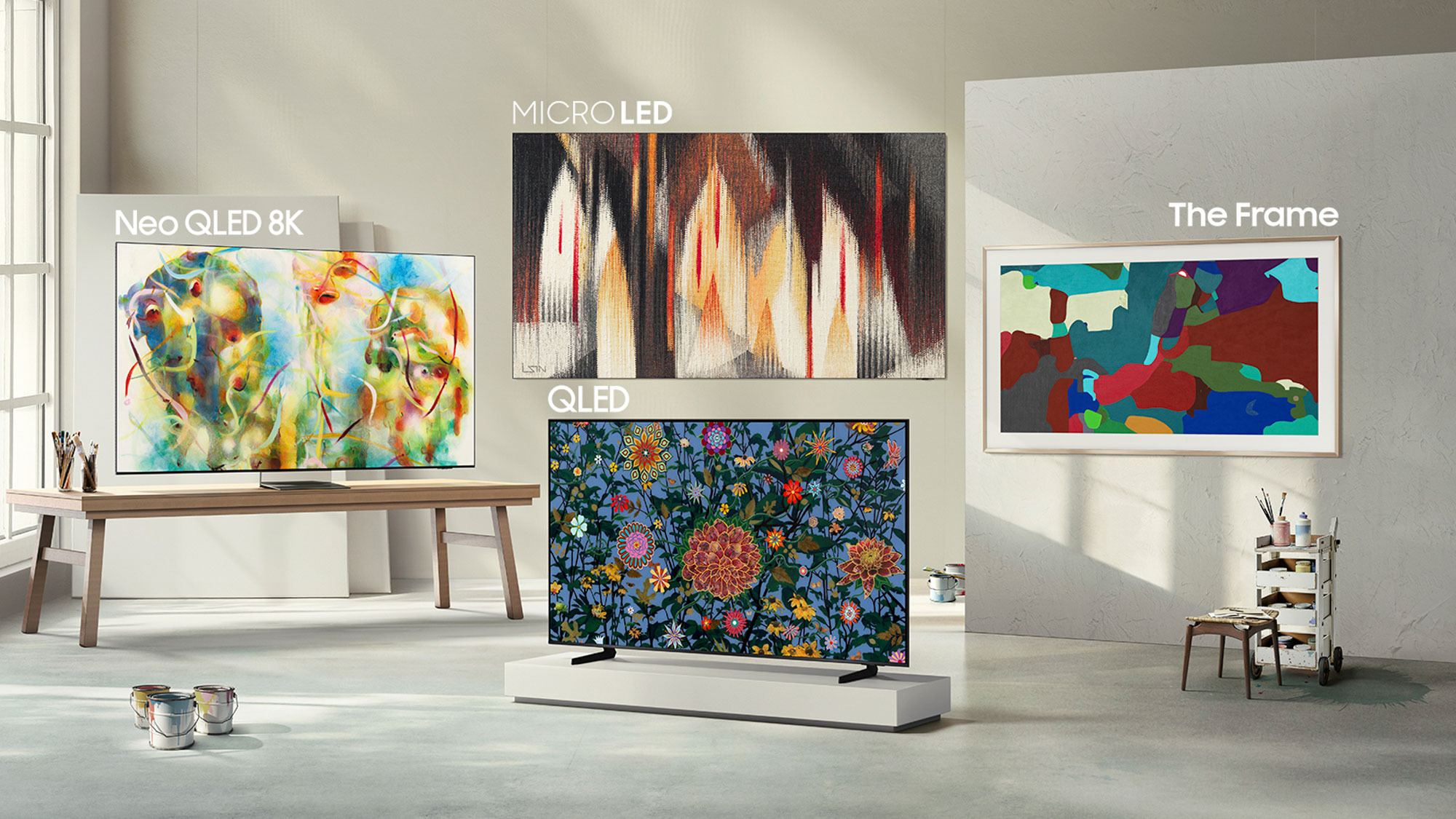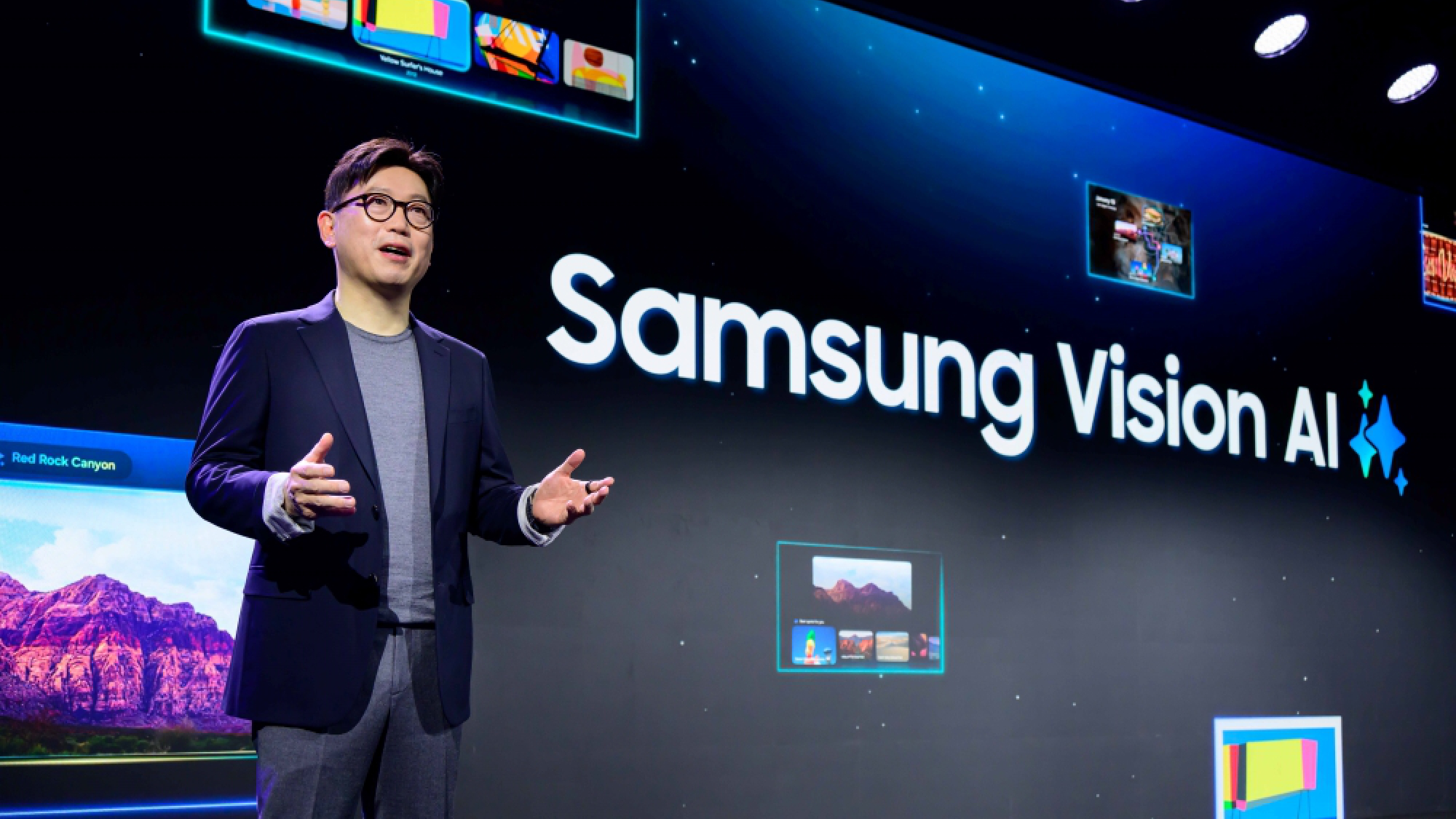
CES 2025 has its fair share of AI, but nestled within the Samsung 2025 TV lineup is a host of fascinating new ways of utilizing and experiencing the technology. These new AI advancements fall in line with Samsung’s Vision AI for 2025, which takes shape beyond advanced screens in the form of open partnerships with the likes of Google and Microsoft.
The new 8K QN900F and QN990F QLED TVs are prime examples of what to expect. Powering these ultra-premium displays is Samsung's 8K NQ8 processor, which aims to double the speed of its predecessor — and its most ingenious trick is upscaling 4K content into its native 8K resolution, which is no mean feat.
With both Microsoft in its corner, providing Copilot for its screens, as well as Google by way of its collaborating on a Dolby Atmos rival in Eclipsa Audio, Samsung's looking to make the AI ecosystem on its TVs the most feature-rich and advanced yet.
If you ever wondered just how far a TV can truly go in streamlining your everyday life, Samsung's got the answer.
AI picture and audio enhancements

Last year I got the chance to experience several of Samsung's new TV AI features for myself at a private event held in Seoul, South Korea. While I didn't have any real hands-on time, I did get to witness several of the company's new AI picture enhancements in action, and you really have to experience them for yourself to believe them.
One such feature was called AI Gamma, which aims to make darker scenes in HDR content feel more immersive by drawing out richer details and highlights. As an example, playing on the new Samsung S95F OLED TV, a super dark scene from "House of the Dragon" was lifted with more depth as the dragon's scales saw far richer details against its pitch black surroundings.
While AI plays a part, the TV actually uses an internal light source to measure your room's ambient situation. For our demo, Samsung played the clip both with the lights turned on and off, showing us just how far AI Gamma can go in delivering (quite literally) the best picture for your particular entertainment setup.
Of course, to reiterate, AI Gamma is strictly intended for HDR content, so if you're not watching in Dolby Vision or HDR10+, you probably won't care. But that's just one small feature baked within a whole ecosystem that aims to enhance picture performance and 4K/8K upscaling to the next level.
AI also finds it way into Samsung's TV speakers, through Adaptive Sound Pro. This feature optimizes the audio coming out of your TV to suit particular scenarios, like improving sound effects and lowering background sounds. A common complaint for most when watching shows or movies is exceptionally low dialogue, which Samsung TVs can now expertly attune for more clarity and balance.
Those are just two minuscule ways AI is improving our content-viewing experiences on Samsung TVs, but the technology extends well past that.
Putting the AI in accessibility
While AI upscaling and picture enhancements are all the rage, there are several alternative methods AI will benefit users on Samsung's new displays and it's most prominently found in advanced accessibility functionalities. These new features include live translations, home insights, pet care, and even an AI companion.
That's right, you'll soon be able to talk to Samsung's TVs thanks to a new and improved Bixby voice assistant, which can search for content, adjust volume, change channels, and much more. An AI button on 2025 Samsung TVs will be able to pull up everything from similar content recommendations to scene recognition for actor names, settings, and summaries.
In regard to the latter, say you're watching your favorite cooking show but aren't quite sure what ingredient is being used. You can now ask Bixby not just what the ingredient is but to give you the entire recipe so you might be able to follow along more easily.
You'll also see AI integrated into the SmartThings ecosystem, Samsung's place for all things smart home. AI will now be capable of alerting you whenever something's amiss at home and give you consistent updates whenever you're away.
You'll also be able to sync several features with compatible devices, like setting the TV to "automatically recognize situations and adjust the room settings, such as dimming the lights when you fall asleep." Though somewhat creepy, it's clear that Samsung is taking every step to bridge AI into our lived experience, and it's setting a whole new bar for what you might expect in a conventional TV.
Copilot integration and Google partnership

The future is bright for Samsung displays. It's partnering up with heavy-hitters in the tech world, like Microsoft and Google, to deliver unrivaled experiences through AI. Microsoft Copilot is set to launch on Samsung's 2025 TVs later this year, but the company did stay rather quiet on the nature of its Google AI partnership.
Samsung and Google announced last week a new collaboration in Eclipsa, an open-source 3D audio format that takes several shots at Dolby Atmos. Now it's in the limelight, ready to eclipse its rival — but it doesn't have any real connections to AI. So what exactly is Google and Samsung working on in the TV AI sphere? It's unclear, but it could be huge for Samsung's ecosystem.
And the buck doesn't stop at Microsoft or Google, as Samsung does specify in its blog post that it "plans to work closely with leading AI partners such as Google and others to expand what Samsung Vision AI can do." We'll see how that officially takes shape in the future, but for now it's hard to see how AI on Samsung's TVs could get any better.







